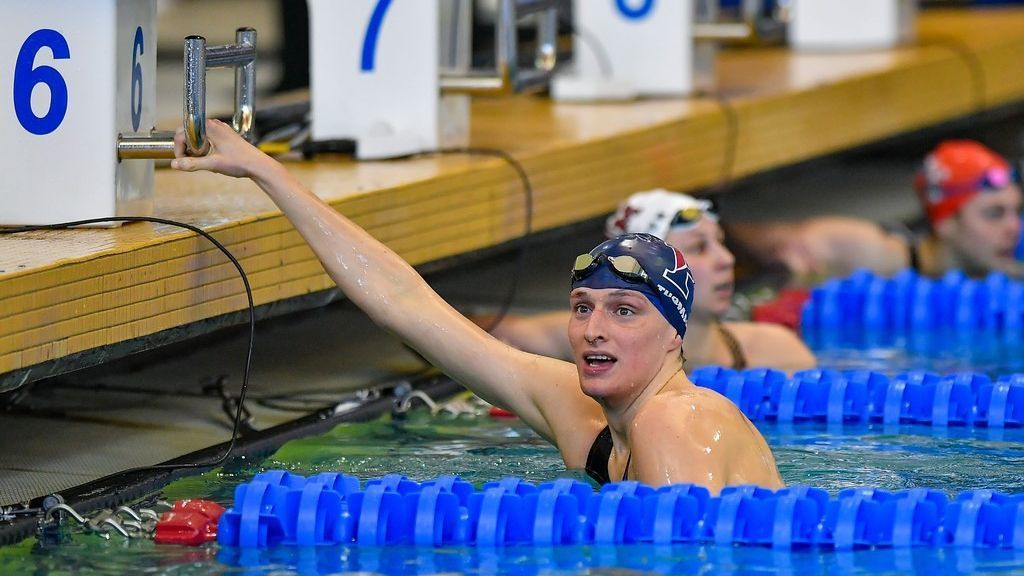ATLANTA — Former Kentucky swimmer Riley Gaines was among more than a dozen people Thursday to file a lawsuit against the NCAA for violating their Title IX rights by allowing Leah Thomas to compete in the 2022 national championships. He was one of the college athletes.
The lawsuit, filed in U.S. District Court in Atlanta, details the shock Gaines and other swimmers felt when they learned they would have to share a locker room with Thomas at the championships in Atlanta. The book chronicles a number of races he swam with Thomas, including the 200-yard final where he and Gaines tied for fifth place, but the fifth-place trophy went to Thomas rather than Gaines.
Another plaintiff, Tyler Mathieu of Florida, finished ninth in his qualifying heat for the 500 free, leaving one spot in the final for Thomas to win. Thomas became the first openly transgender athlete to win a Division I title in any sport, winning in front of three Olympic medalists. By failing to advance to the finals, Mathieu was stripped of first-team All-American honors for that tournament.
Other plaintiffs included volleyball and track and field athletes.
The lawsuit says the plaintiffs “brought this action to ensure future generations of women the promise of Title IX that has been denied to them by the NCAA.”
The NCAA declined to comment on the lawsuit.
Critics argue that transgender athletes have an advantage over cisgender women in competition, but extensive research on elite athletes remains generally lacking, and for example, It is virtually non-existent when it comes to determining whether transgender women have a clear advantage over their cisgender opponents. teammate.
In 2022, the NCAA followed the lead of the U.S. Olympic and Paralympic Committee in revising its policy on transgender athlete participation and working with national sports governing bodies.
The third phase of the revised policy will add standards for national and international sports governing bodies to the NCAA's rules and be implemented in the 2024-25 academic year.
The lawsuit also names the University System of Georgia as a defendant because one of its schools, Georgia Tech, hosted the 2022 championship game. The lawsuit seeks to prevent the NCAA from adopting a transgender eligibility policy at future events in Georgia that “adversely impacts female athletes in violation of Title IX.”
Representatives for the Georgia schools said they had not received the lawsuit and declined to comment.


